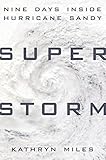It looks like we’re going to have a climate change denier heading up the EPA, Oklahoma’s attorney general Scott Pruitt, who has spent the Obama administration suing the agency he will now lead. So we’ll be hearing a lot about whether the science is “settled” and the uncertainty in climate scientists forecast.
As you listen to these debates, the thing to know is that climate change isn’t just about what might happen in the future. It has already radically altered the planet in ways that may be invisible to those of us who live in wealthy countries, but not to just about all life on Earth. As a recent review of the documented biological impacts of climate change puts it, “Climate change impacts have now been documented across every ecosystem on Earth.”
Last month I wrote about this story for Pacific Standard. The key point is one to keep in mind as we confront denialism in the Trump administration:
The consequences of widespread and rapid changes to something as complex as the world’s ecosystems are difficult to predict. The unpredictability of these consequences has been used as an excuse to dismiss them and paint scientists as alarmists. But unpredictability is exactly what should concern us: Our civilization, including our agriculture, water usage, population geography, and public-health measures, are adapted to fit the global climate that we live in. The prospect of further broad, unpredictable shifts to the world’s ecosystems should spur us to action, not complacency. As the authors of the Science paper write, “humanity depends on intact, functioning ecosystems for a range of goods and services.” For most life in those ecosystems, climate change is not a future event, but a present reality.




